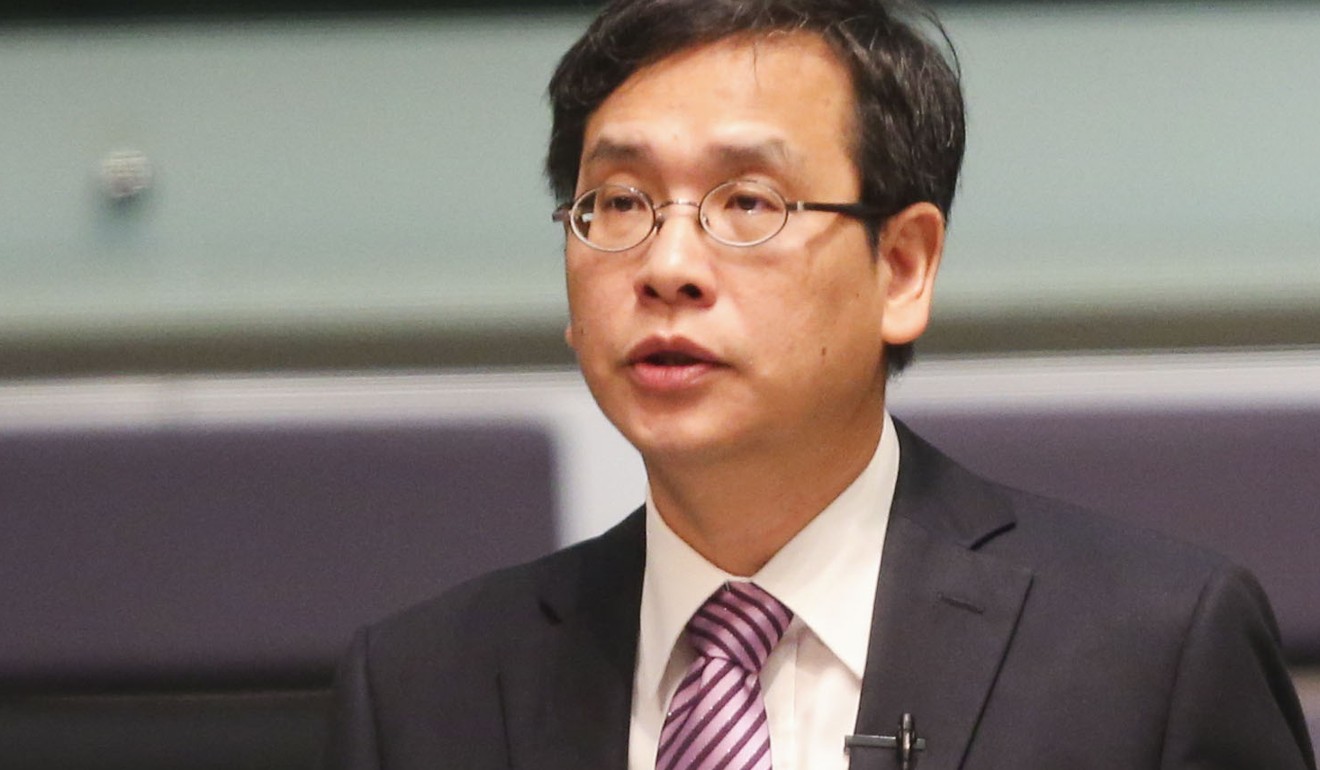
Nine-year first as Hong Kong’s Legislative Council passes motion of thanks for policy address
Three pro-democracy lawmakers from trade-based constituencies help customary motion pass for first time since 2008
The three were all from Legco’s trade-based functional constituencies – Ip Kin-yuen of education, Kenneth Leung of accountancy and Joseph Lee Kok-long of health.
The motion is a simple acknowledgement of the chief executive’s policy address, in which he or she lays out the government’s agenda for the year. Lam’s maiden address is now only the sixth in the 20 years since Hong Kong’s return to Chinese rule to receive the thanks.
Though the motion would have made it without any pan-democratic support, the vote marked the break from Leung Chun-ying’s tenure, during which no one from the opposition camp ever supported the motion.
“We are pleased that the motion passed with a majority,” Chief Secretary Matthew Cheung Kin-chung said after the vote. “We will continue to strengthen communication with Legco with a sincere, modest and practical attitude.”
Pan-democrats tabled five amendments to the motion, urging Lam to restart constitutional reform and safeguard labour rights. All were vetoed.

“I just approve what is right and condemn what is wrong,” Ip said. He said most teachers felt positively about the measures Lam laid out in the policy address.
But pan-democrats who opposed the motion voiced concern about an undermining of freedoms and the rule of law in the city, as well as the halt to constitutional development.
He called on Lam to reflect to Beijing Hongkongers’ strong desire for universal suffrage, and fight for a looser framework for constitutional reform.
Civic Party leader Alvin Yeung Ngok-kiu said: “I can’t see Lam’s determination to break the August 31 [universal suffrage] framework set by the Beijing, which is the core issue of the deep-rooted social and political problems.” He was referring to the restrictive framework laid down by China’s top legislative body for future chief executive elections.
Lam affirms city’s commitment to free trade at her first Apec summit
Starry Lee Wai-king, who chairs pro-Beijing party Democratic Alliance for the Betterment and Progress of Hong Kong, said the city had to focus on development before constitutional reform.
“[Implementing] ‘one country, two systems’ is an interactive process … If we want a larger space on autonomy, Hong Kong has to gain trust from the country first,” Lee said, citing the governing principle under which Beijing rules the semi-autonomous city.
And pro-Beijing lawmaker Abraham Razack praised Lam’s address. He said: “[Lam’s] giveaways generously covered all major areas, aiming to capture the hearts and minds of people after five years of frustration and despair.”
He described the budget giveaways as “political candies” to satisfy the hunger for fairness and harmony in the city after Leung Chun-ying’s tenure.
But Razack said only time would tell if the measures could solve the city’s deep-rooted social problems, especially the housing crisis and widening wealth gap.

